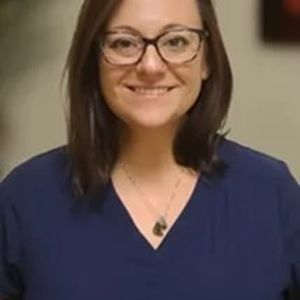






CORE Program at Futures Recovery Healthcare
Verified Center
This provider's information has been quality-checked by Recovery.com's Research Team for accuracy and completeness, including center verification through appropriate third-party organizations.
Treatment Focus
This center treats substance use disorders and co-occurring mental health conditions. Your treatment plan addresses each condition at once with personalized, compassionate care for comprehensive healing.
Primary Level of Care
Offering intensive care with 24/7 monitoring, residential treatment is typically 30 days and can cover multiple levels of care. Length can range from 14 to 90 days typically.
Treatment Focus
This center treats substance use disorders and co-occurring mental health conditions. Your treatment plan addresses each condition at once with personalized, compassionate care for comprehensive healing.
Primary Level of Care
Offering intensive care with 24/7 monitoring, residential treatment is typically 30 days and can cover multiple levels of care. Length can range from 14 to 90 days typically.
Provider's Policy
Futures is a primary out-of-network provider that works with patients and insurance providers to make its services as accessible and affordable as possible. We do also work with groups we direct contract with so please inquire with our team on whether your employer, group or EAP is contracted with us.
CORE Program at Futures Recovery Healthcare
CORE Program at Futures Recovery Healthcare
About CORE Program at Futures Recovery Healthcare
Futures Recovery Healthcare empowers clients to embark on a new future and pursue authentic, productive, joyful lives. Their CORE program provides detoxification and residential treatment within a structured, clinically driven environment, as well as outpatient and aftercare support. Located on a lush, 9-acre gated campus, Futures offers an immersive setting where an experienced team supports clients’ healing with comprehensive therapies and thoughtfully designed amenities.
Empower Recovery with a Whole-Person Approach
The CORE program embraces complexity as their team addresses the physical, emotional, and psychological aspects of addiction. Clients work closely with dedicated clinical teams to uncover the root causes of substance use and build healthy coping strategies. Treatment integrates approaches like cognitive behavioral therapy (CBT), dialectical behavior therapy (DBT), and motivational interviewing (MI). Services like fitness training, mindfulness, and wellness coaching support sustained recovery and resilience.
Rebuild Strength In Engaging, Peaceful Spaces
Clients stay in comfortable, apartment-style residences featuring private and semi-private bedrooms and shared living spaces. An on-site culinary team prepares high quality and nutritious meals. The campus includes a pool, hot tub, fitness center, library, and outdoor tennis, basketball, and volleyball courts. Wellness-focused spaces, including meditation paths and an art studio, along with supportive recreational activities help clients stay active and engaged while focusing on their recovery.
Maintain Momentum Through Structured Follow-Up
Aftercare plans connect clients with local recovery communities and alumni groups, plus therapy, coaching, and support-group guidance. They support multiple pathways—AA, NA, Celebrate Recovery, Dharma, SMART, and Wellbriety. The Alumni Program offers weekly meetings (with virtual options), monthly events, and a structured outreach schedule: 17 calls in the first year and follow-ups for 5 years. Families receive wellness-focused support, and Soberlink or app-based testing helps reinforce accountability and sustained recovery.

Highlights from the Center
Highlights
These highlights are provided by and paid for by the center.
Co-Occurring Disorders Treatment
Perfect for Professionals
Wellness Emphasis
Master's and Doctoral Level Therapists
Center Overview
Treatment Focus
This center treats substance use disorders and co-occurring mental health conditions. Your treatment plan addresses each condition at once with personalized, compassionate care for comprehensive healing.
Joint Commission Accredited
The Joint Commission accreditation is a voluntary, objective process that evaluates and accredits healthcare organizations (like treatment centers) based on performance standards designed to improve quality and safety for patients. To be accredited means the treatment center has been found to meet the Commission's standards for quality and safety in patient care.
Insurance Accepted
Cash Pay Rates
Estimated Cash Pay Rate
Center pricing can vary based on program and length of stay. Contact the center for more information. Recovery.com strives for price transparency so you can make an informed decision.
Luxury rehab centers offer a unique blend of luxurious amenities and high-quality treatment. From private suites to gourmet dining, personal trainers to spa treatments, these facilities provide a high level of comfort and discretion.

Meet Your Care Team

Michael Holloway
Owner, Visionary, Founder

Tammy Malloy
Chief Executive Officer
PhD, LCSW, CSAT

Gloria Dunkin
Executive Medical Director
MD

Angela Bustamante
Executive Clinical Director
MS, LMHC

Dr. Cristine Drake
Wellness Director
DPT

Kate Armstrong
Chief Operating Officer
LMHC, CRRA

Willa Keel
Director of Nursing
RN

Eija Toivonen Wood
Lead Nurse Practitioner
APRN

Danara Nelson
Lead Medical and Psychiatric Provider for Orenda
MSN, APRN, NP-C, PMHNP-BC

Katie Cullen
Lead Primary Therapist
LMHC

Casey Gildemyer
Family Support Specialist
MS, MCAP

Li Zhang
Licensed Acupuncturist
LAC, DIPL, OM

Amie Davidsom
Physical Therapist Assistant
PTA

Ian Mathisem
Admissions Coordinator

Julie M. Snell
Massage Therapist
LMT, CRP




Levels of Care







Your Care Options
Specializations
Chronic Pain Management
Long-term physical pain can have an affect on mental health. Without support, it can also impact your daily life and even lead to addiction.
Co-Occurring Disorders
A person with multiple mental health diagnoses, such as addiction and depression, has co-occurring disorders also called dual diagnosis.
Drug Addiction
Drug addiction is the excessive and repetitive use of substances, despite harmful consequences to a person's life, health, and relationships.
Executives
Executive treatment programs typically directly support the needs of people who manage businesses and may provide flexible schedules and office space to allow work during treatment.
Family Involvement
Providers involve family in the treatment of their loved one through family therapy, visits, or both–because addiction is a family disease.
Professionals
Busy, high-ranking professionals get the personalized treatment they need with greater accommodations for work, privacy, and outside communication.
Residential
In a residential rehab program, patients live onsite, with access to daily treatment and 24-hour care. An average stay is 30-90 days.
Who We Treat
Professionals
Busy, high-ranking professionals get the personalized treatment they need with greater accommodations for work, privacy, and outside communication.
Approaches
Evidence-Based
A combination of scientifically rooted therapies and treatments make up evidence-based care, defined by their measured and proven results.
Experiential
Expressive tools and therapies help patients process past situations, learn more about themselves, and find healing through action.
Family Involvement
Providers involve family in the treatment of their loved one through family therapy, visits, or both–because addiction is a family disease.
Holistic
A non-medicinal, wellness-focused approach that aims to align the mind, body, and spirit for deep and lasting healing.
Wellness
Wellness philosophies focus on the physical, mental, and spiritual wellness of each patient, helping them restore purpose with natural remedies.
Therapies
1-on-1 Counseling
Patient and therapist meet 1-on-1 to work through difficult emotions and behavioral challenges in a personal, private setting.
Meditation & Mindfulness
A practiced state of mind that brings patients to the present. It allows them to become fully aware of themselves, their feelings, and the present moment.
Art Therapy
Visual art invites patients to examine the emotions within their work, focusing on the process of creativity and its gentle therapeutic power.
Equine Therapy
Guided interactions with trained horses, their handler, and a therapist can help patients improve their self-esteem, trust, empathy, and social skills.
Experiential Therapy
With this approach, patients heal by doing. Therapists help patients process difficult emotions to speak, using guided activities like art or dance.
Eye Movement Therapy (EMDR)
Lateral, guided eye movements help reduce the emotional reactions of retelling and reprocessing trauma, allowing intense feelings to dissipate.
Family Therapy
Family therapy addresses group dynamics within a family system, with a focus on improving communication and interrupting unhealthy relationship patterns.
Conditions We Treat
Anger
Although anger itself isn't a disorder, it can get out of hand. If this feeling interferes with your relationships and daily functioning, treatment can help.
Anxiety
Anxiety is a common mental health condition that can include excessive worry, panic attacks, physical tension, and increased blood pressure.
Bipolar
This mental health condition is characterized by extreme mood swings between depression, mania, and remission.
Chronic Pain Management
Long-term physical pain can have an affect on mental health. Without support, it can also impact your daily life and even lead to addiction.
Codependency
Codependency is a pattern of emotional dependence and controlling behavior. It's most common among people with addicted loved ones.
Depression
Symptoms of depression may include fatigue, a sense of numbness, and loss of interest in activities. This condition can range from mild to severe.
Post Traumatic Stress Disorder
PTSD is a long-term mental health issue caused by a disturbing event or events. Symptoms include anxiety, dissociation, flashbacks, and intrusive thoughts.
Trauma
Some traumatic events are so disturbing that they cause long-term mental health problems. Those ongoing issues can also be referred to as "trauma."
Substances We Treat
Alcohol
Using alcohol as a coping mechanism, or drinking excessively throughout the week, signals an alcohol use disorder.
Benzodiazepines
Benzodiazepines are prescribed to treat anxiety and sleep issues. They are highly habit forming, and their abuse can cause mood changes and poor judgement.
Chronic Relapse
Consistent relapse occurs repeatedly, after partial recovery from addiction. This condition requires long-term treatment.
Co-Occurring Disorders
A person with multiple mental health diagnoses, such as addiction and depression, has co-occurring disorders also called dual diagnosis.
Cocaine
Cocaine is a stimulant with euphoric effects. Agitation, muscle ticks, psychosis, and heart issues are common symptoms of cocaine abuse.
Drug Addiction
Drug addiction is the excessive and repetitive use of substances, despite harmful consequences to a person's life, health, and relationships.
Ecstasy
Ecstasy is a stimulant that causes intense euphoria and heightened awareness. Abuse of this drug can trigger depression, insomnia, and memory problems.
Heroin
Heroin is a highly addictive and illegal opioid. It can cause insomnia, collapsed veins, heart issues, and additional mental health issues.
Languages
Aftercare
Care Designed for Your Needs
Personal Amenities
Amenities
Special Considerations
Activities
Off-Site Activities
What people are saying
Treatment
4.3
Accommodations
4.8
Food & Nutrition
4.1
Value
4.3
Pros
- Excellent & Effective Treatment Programming (5)
- Supportive Aftercare (5)
- Beautiful Location (5)
- Smooth Transition Post-Treatment (4)
Cons
- Limited Time to Work (3)
- Not Enough Time With Therapist (2)
Anonymous
Treatment in 2019 • (30 days) • Reviewed 10/18/23
Former Client
Ben B
Treatment in 2023 • (90 days) • Reviewed 03/17/25
Former Client
•Builder
B
Treatment in 2023 • (30 days) • Reviewed 10/19/23
Former Client
MDF
Treatment in 2023 • (30 days) • Reviewed 08/27/23
Loved One of a Former Client
Anonymous
Treatment in 2021 • (30 days) • Reviewed 09/23/21
Former Client






